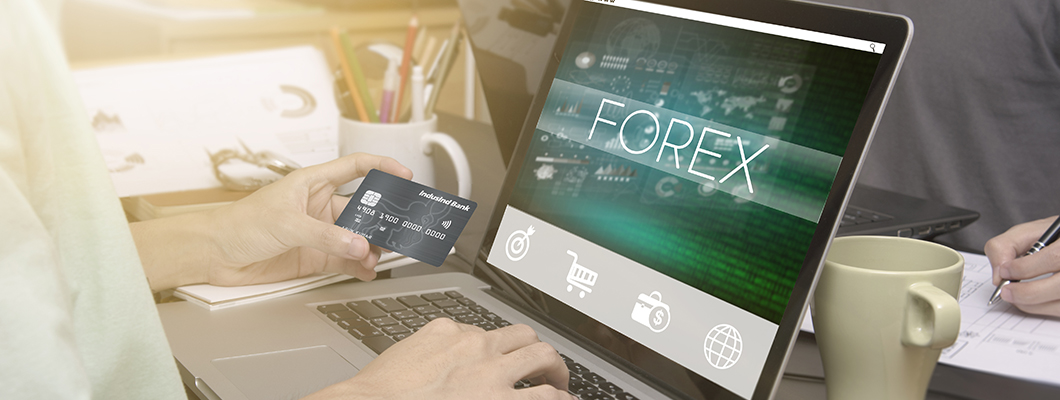
Forex Cards vs. Traditional Banking: Which is the Better Option for International Travel
Posted on Thursday, May 16th, 2024 | By IndusInd Bank
Adding ‘international trip planning’ to our busy schedule sends stress soaring! ATMs, credit cards, forex cards – there are one too many finance options with complex rules! However, selecting the right one can make all the difference in ensuring you have a smooth and hassle-free vacation.
The two most popular options travellers face are forex cards and traditional banking through ATM withdrawals or credit/debit cards. But which one should you go for? Let’s weigh the pros and cons of each to help you decide.
What is a Forex Card?
A forex card, also known as a travel card, is a prepaid travel card that allows you to store money in multiple foreign currencies in one card. Forex cards function similarly to debit cards and can be used to withdraw cash from ATMs, make POS payments at retail outlets, restaurants, etc. or shop online internationally.
Some key benefits of forex cards are:
- Available in multiple popular international currencies like USD, EUR, GBP, etc., allowing easy usage globally
- Safe to carry instead of cash and easier to use than traveler’s cheques
- Locked-in exchange rates protect you from currency fluctuations
- Can be easily reloaded as per requirement
- Accepted worldwide across ATMs and merchant outlets
Pros of Forex Cards
- Fixed Currency Exchange Rates: When you load a Forex card with foreign currency, the exchange rate is locked in, protecting you from any currency fluctuations later on.
- Security: Carrying forex cards is safer than carrying foreign currency cash, which you could lose or be robbed of. Forex cards can be locked instantly if stolen or lost.
- Low Transaction Charges: Using a Forex card to withdraw money internationally leads to lower fees compared to domestic debit/credit card transactions or international wire transfers from banks.
Cons of Forex Cards
- Reloading Inconvenience: You may run out of loaded amounts, so you’ll need access to reload facilities, which may not be conveniently available while travelling due to network availability
- Limited Currencies: While forex cards allow multicurrency storage, the currency options are still limited, usually to 8-10 major currencies. They may not be useful if travelling to exotic countries.
What is Traditional Banking?
Under traditional banking options for international travel, you would primarily use your domestic debit/credit card or withdraw cash locally through foreign ATMs using your domestic card.
The major traditional banking methods travellers rely on include:
- Domestic Debit/Credit Cards: Usage charges apply but convenient if your card allows international transactions
- International Bank Wire Transfers: Transfer money into an overseas bank account from your domestic account before you travel
- Overseas Bank Account Withdrawals: Withdraw cash using your ATM/debit card from an existing bank account in the visiting country if you have one
- Overseas ATM Withdrawals: Withdraw cash from ATMs in foreign countries through affiliated banking networks using your domestic debit card
Pros of Traditional Banking
- Wider Acceptability: Debit/credit card acceptance is wider than forex cards, especially in developed countries.
- Familiar Process: Using your domestic card internationally mirrors your local usage experience closely.
- Emergency Fund Access: You can wire transfer additional money if needed urgently through your bank while travelling.
- Rewards Points: International transactions may allow accruing travel rewards points on premium cards.
Cons of Traditional Banking
- Hidden Charges: International ATM withdrawals, wire transfers and card usage attract additional banking charges plus currency conversion fees.
- Foreign Transaction Fee: Using your domestic card overseas also attracts charges ranging from 3-5% per transaction. These add up.
Should You Opt For a Forex Card or Traditional Banking?
While both forex cards and traditional banking have their pros and cons, forex cards are emerging as a more convenient, flexible and cost-effective option in most cases, especially for frequent international travellers visiting multiple countries. For most travellers, keeping a Forex card handy loaded with your primary country currencies and having a credit/debit card as backup is the best combination.
Conclusion
While traditional banking options still have their place, forex cards provide better exchange rates, convenience, security and flexibility for stress-free international trips. As worldwide travel opens up post-pandemic, the multi-functional forex card truly provides peace of mind, allowing you to optimise your overseas spending as well as enjoy cashless convenience across world destinations.
Disclaimer: The information provided in this article is generic in nature and for informational purposes only. It is not a substitute for specific advice in your own circumstances. Hence, you are advised to consult your financial advisor before making any financial decision. IndusInd Bank Limited (IBL) does not influence the views of the author in any way. IBL and the author shall not be responsible for any direct/indirect loss or liability incurred by the reader for taking any financial decisions based on the contents and information.



 Offers
Offers Rates
Rates Debit Card Related
Debit Card Related Credit Card Related
Credit Card Related Manage Mandate(s)
Manage Mandate(s) Get Mini Statement
Get Mini Statement
 categories
categories Bloggers
Bloggers Blog collection
Blog collection Press Release
Press Release


